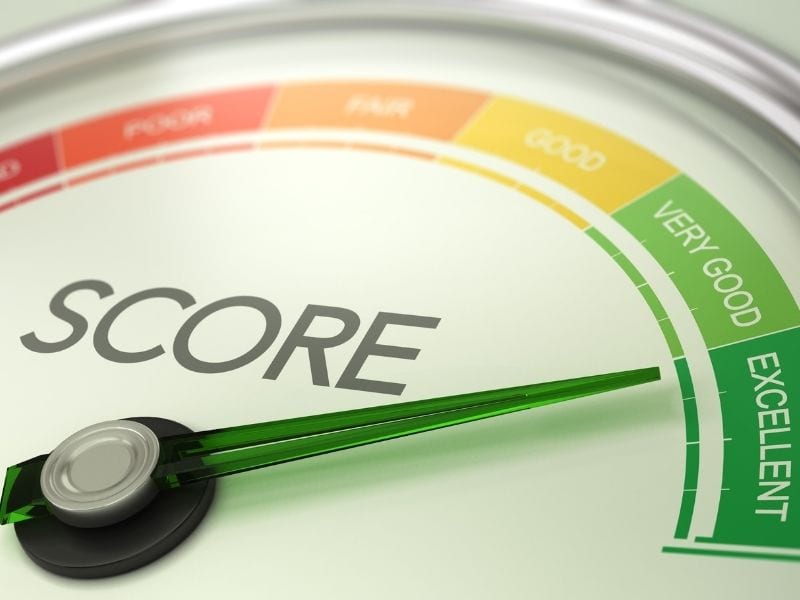What is a credit score!
When I was in college, I didn’t know what a credit score was. I opened up my first credit card my first year of university with a $1000 limit, pre-approved, with a free t-shirt to boot. I understood that if I spent $1000, all I had to worry about was being able to pay $10 as the minimum payment. So began my use of credit cards.
I never understood details of credit score, or why carrying a credit card balance was a problem. I never understood that charging items on my credit cards could end up costing me so much more than the actual ticket price. I believed that paying interest was ok because it allowed me to do things I wouldn’t be able to do otherwise!! It’s so funny to me now to remember my thought process back then. But not funny when I think of how much money I wasted by not understanding credit cards. I always paid on time, which kept my credit score in good standing, but I didn’t know exactly how credit scores worked, or why I should care.
Not understanding credit and not paying on time, can get people in trouble. And if you don’t understand the consequences, it will come back to haunt you, right when you need to do something that requires a good credit score.
A credit score is a number between 300 and 850 (called FICO Score) that becomes attached to you based on your credit history. Opening and using credit cards, taking out car loans, mortgages, etc are all things that contribute to your score. When starting out, you have little credit history so a low score is expected until you start showing your payment behaviours such as paying on time, how much credit you have available versus what you have used, and how often you apply for a loan.
A credit score can significantly affect your financial life. It plays a key role in a lender’s decision to offer you credit. Based on your score, you will either be offered a low interest rates (with a high credit score) when you apply for loans such as mortgages and car loans, or you will be offered high interest rates, or denied approval for credit because of a bad score.
A credit score is based on your credit behavior. The score is calculated using the percentages listed for those behaviours which include – Applying for new credit, (10%), Mix of credit (credit cards, loans, mortgages, etc) 10%, Length of credit history – 15%, Amounts owed – 30%, and your payment history – 35%. The higher your score, the better as you will be considered low risk to those who are considering lending to you. They want to make sure they are going to get paid back!
Let’s look at each of these categories:
- Applying for new credit – The more you apply for credit, such as car loans, credit cards, lines of credit, the more your score takes a hit.
- Mix of credit forms 0 Not having different forms of credit will keep your score from increasing, so it’s good to have a mix, but if it’s maxed out, then it will makes things worse.
- Length of history – the longer you have credit cards, for example if you have had cards open for many years, gives you an established history.
- Amounts owing – if you use more than 30% of your limit on credit, then your score will be lower. Best is to only spend 10% or less of your limit to get the best scores. If you are rebuilding, keep it to 10% or less, but put something on it every month or so, as opposed to not using it at all.
- Payment history- This and amounts owing make up 65% of the total score. If you miss even 1 payment, your score can drop dramatically.
While every creditor defines its own ranges for credit scores, the average FICO score range is often used:
- Excellent: 800 to 850
- Very Good: 740 to 799
- Good: 670 to 739
- Fair: 580 to 669
- Poor: 300 to 579
The major credit reporting agencies are Equifax, TransUnion and Experian. Your creditors may report to any of these or all 3. Scores can be different in each agency.
Now that you know how it is calculated, what are the consequences of a low credit score?
- If you get approved for a loan, for example a car loan, with a low score, then you will end up paying a higher interest rate over the life of the loan, which can result in thousands of dollars difference
- If your score is too low, you will get denied for the loan as you will be deemed too high a risk
- Renting an apartment or house. A landlord may ask to check your credit which will tell them if you are a risk to rent to by potentially not paying on time. If you have a low score, it will be more difficult to get approved, and they may require a larger security deposit
- Utility companies when you go to open hydro, or internet, etc may also ask for a security deposit.
- Possibly get denied a cell phone contract. Since they are extending a month of service, they want to be sure they will get paid, so again, if approved, higher deposits, or more upfront payments.
- Certain jobs will require a credit check. They don’t see the score, but they can see if there are items on there, such as bankruptcy, or high debt loads, and for jobs in the finance industry, or upper management jobs, employers are looking for things that may impact your performance
- Higher insurance premiums could also be a consequence, with higher premiums the lower your score. Premiums are not solely based on credit score, but could be a factor.
A bad credit rating can cause a great deal of stress. The interesting thing to note, is that if you are not paying your bills on time, you are ultimately getting charged more money because of it due to higher interest rates, with the fear of being denied something like a place to live. This is why understanding that your behaviours with debt can ruin your life.
If you have a bad score ways to improve
- Pay every bill on time every month. Set up automated payments if you have difficulty with this. This counts for 35% of your score, so this is a priority
- Pay off debt so that your utilization is low. If you owe $5000 in credit card debt and $10,000 is what you have available, get it paid down first to $3000. This would then mean you are using 30% of your available credit. The goal is to get it below 10%, even 6 is what FICO will show as best way to significantly improve your score quicker.
- Don’t close credit cards necessarily. If you have $3000 in credit card debt and have $10,000 in credit limit, then you are at 30%. If you close a card that say has $4000 limit, now your available credit is $6000, now your utilization is at 50%
- Pay off credit cards every month.
- Don’t apply for more credit
- Check your report to make sure all information is accurate. And check it often.
Establishing a solid credit rating is key to building life-long financial stability and not throwing away money on high-interest payments. Rebuilding takes time and effort, but it will improve if you commit to doing the work.




